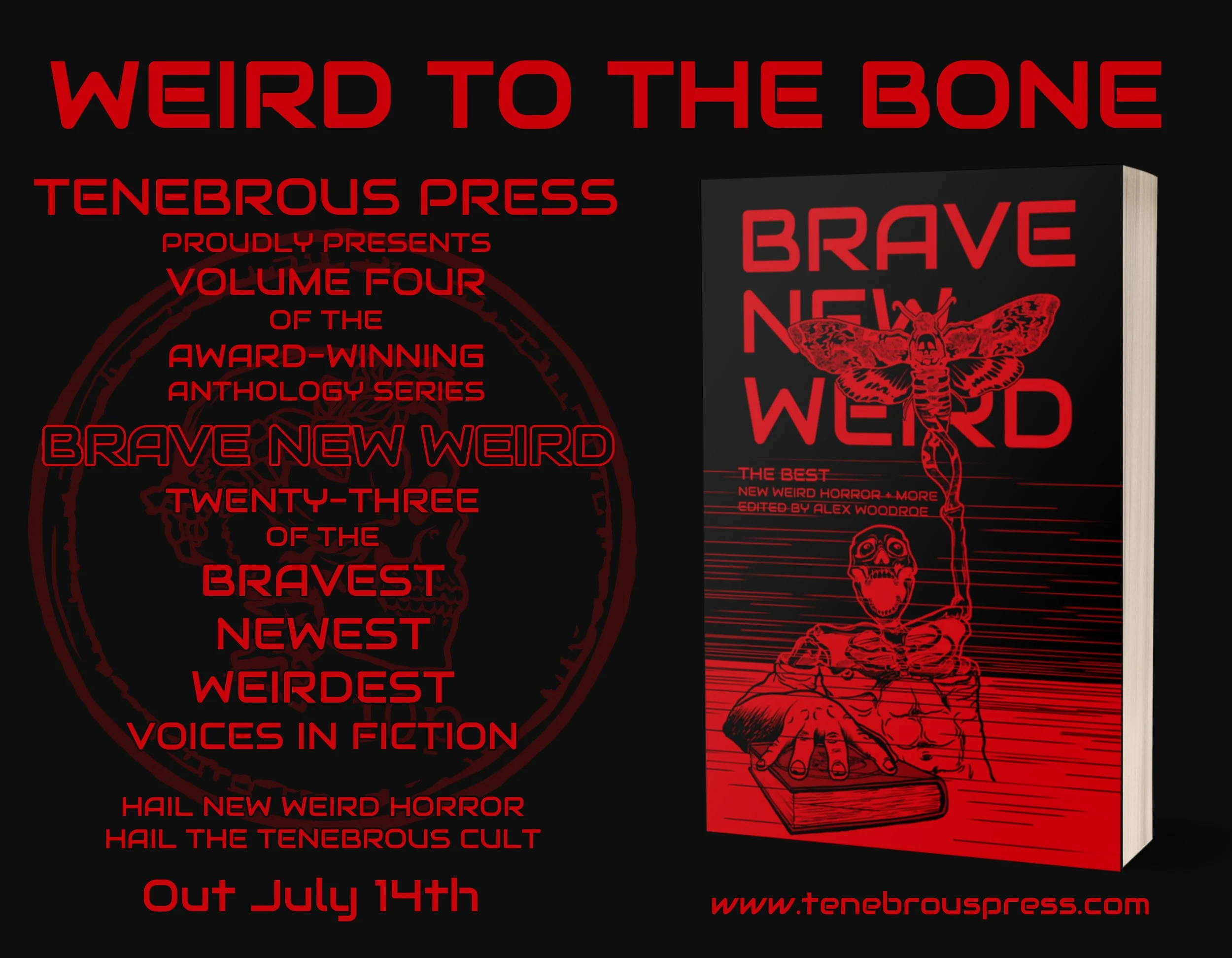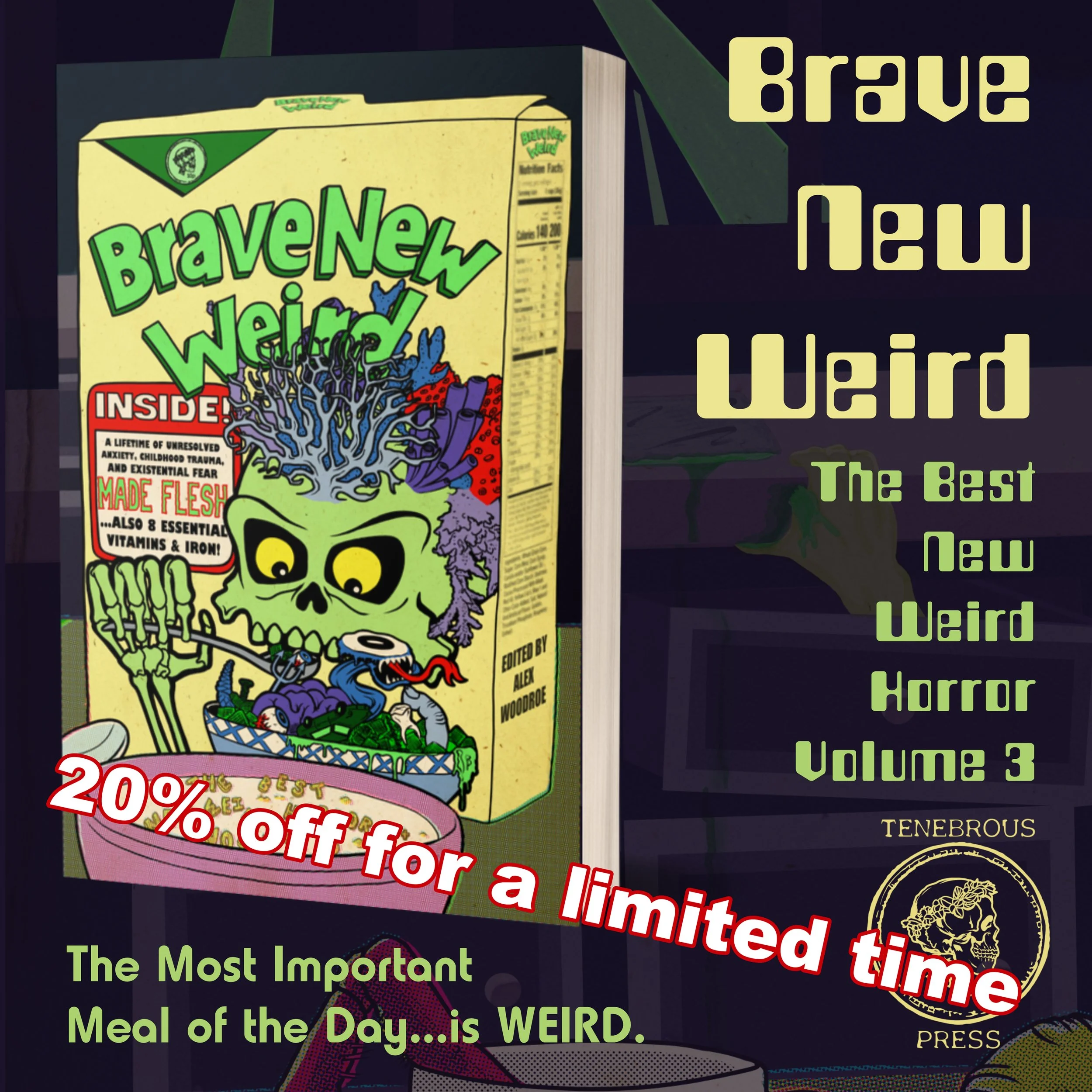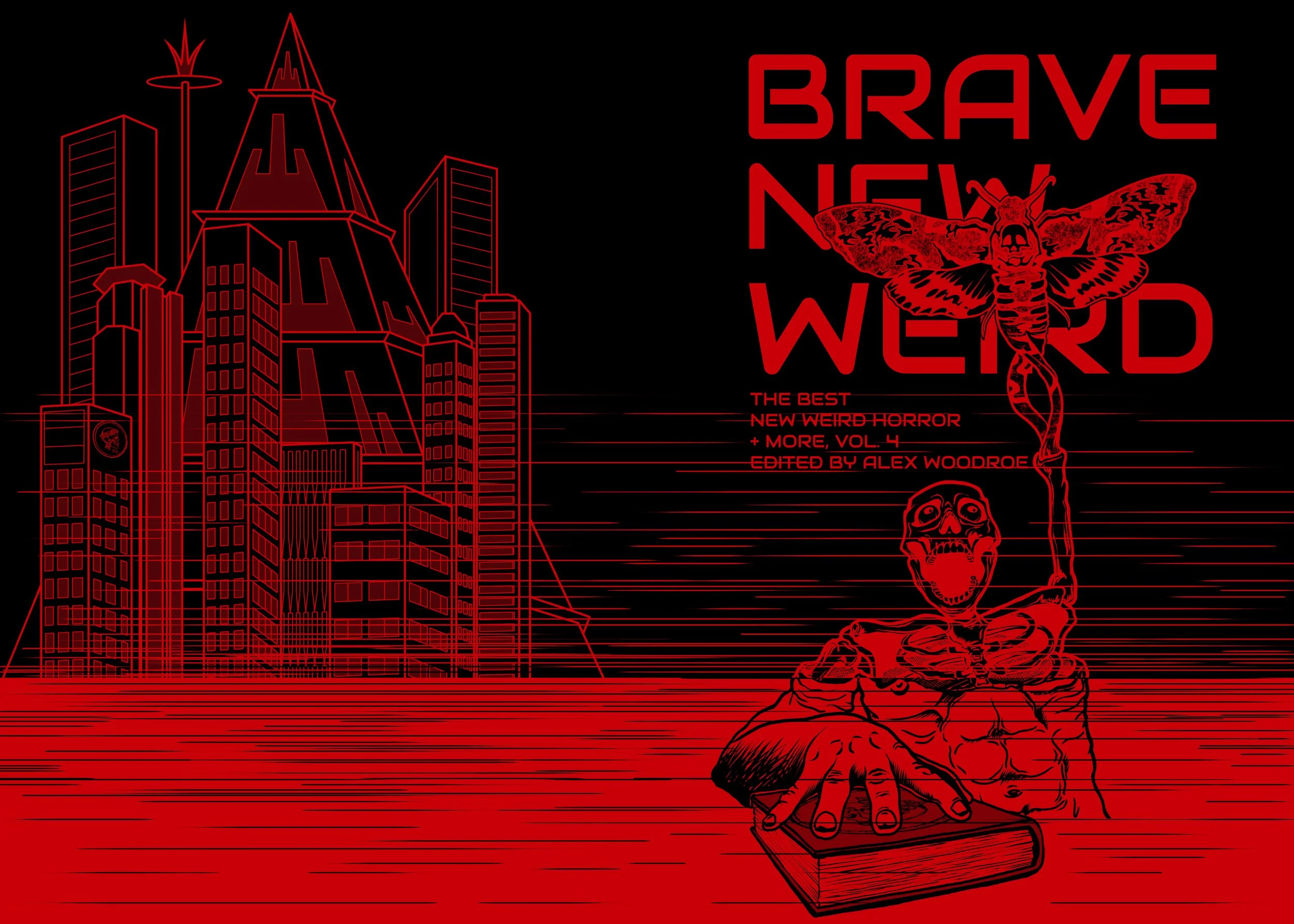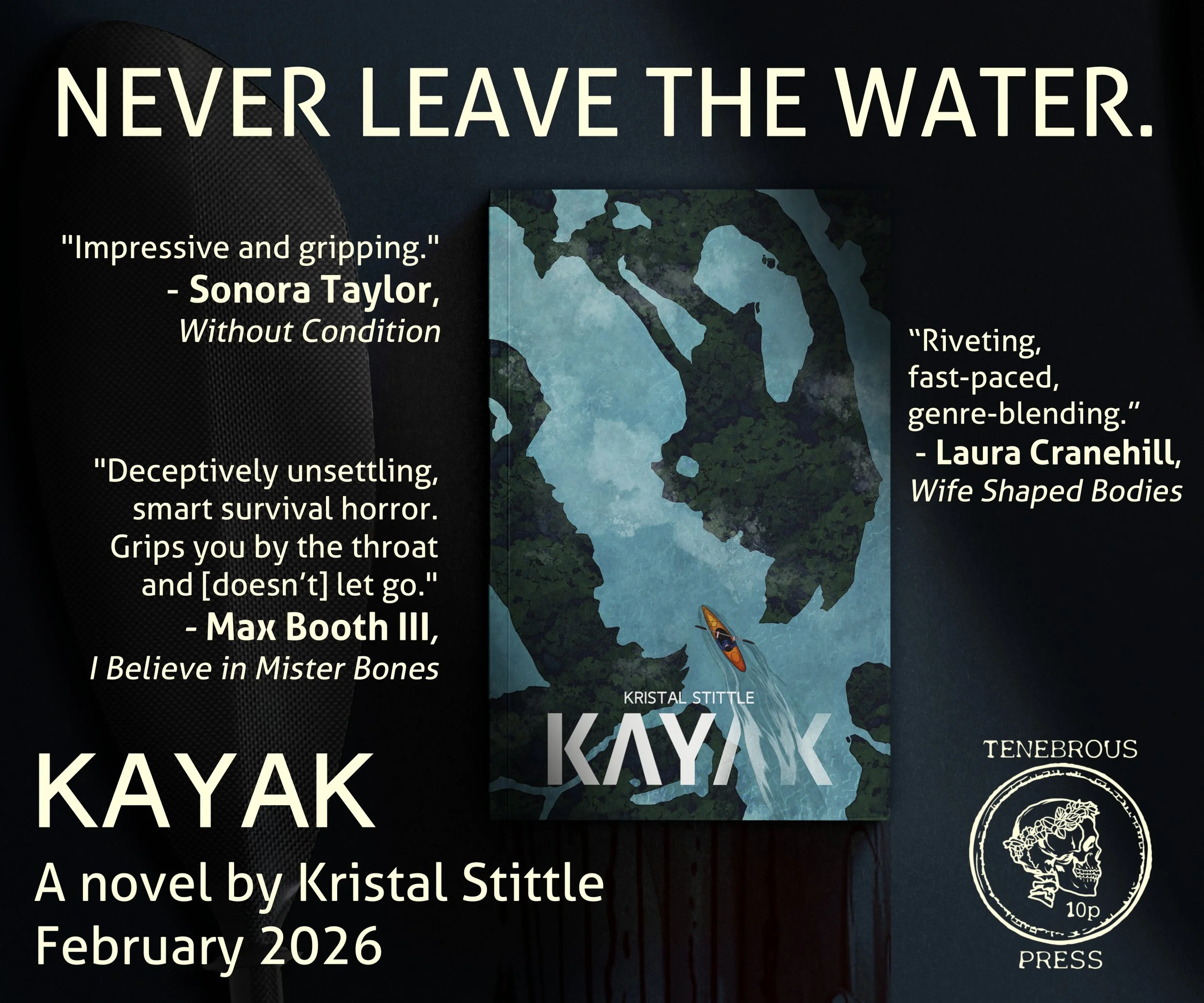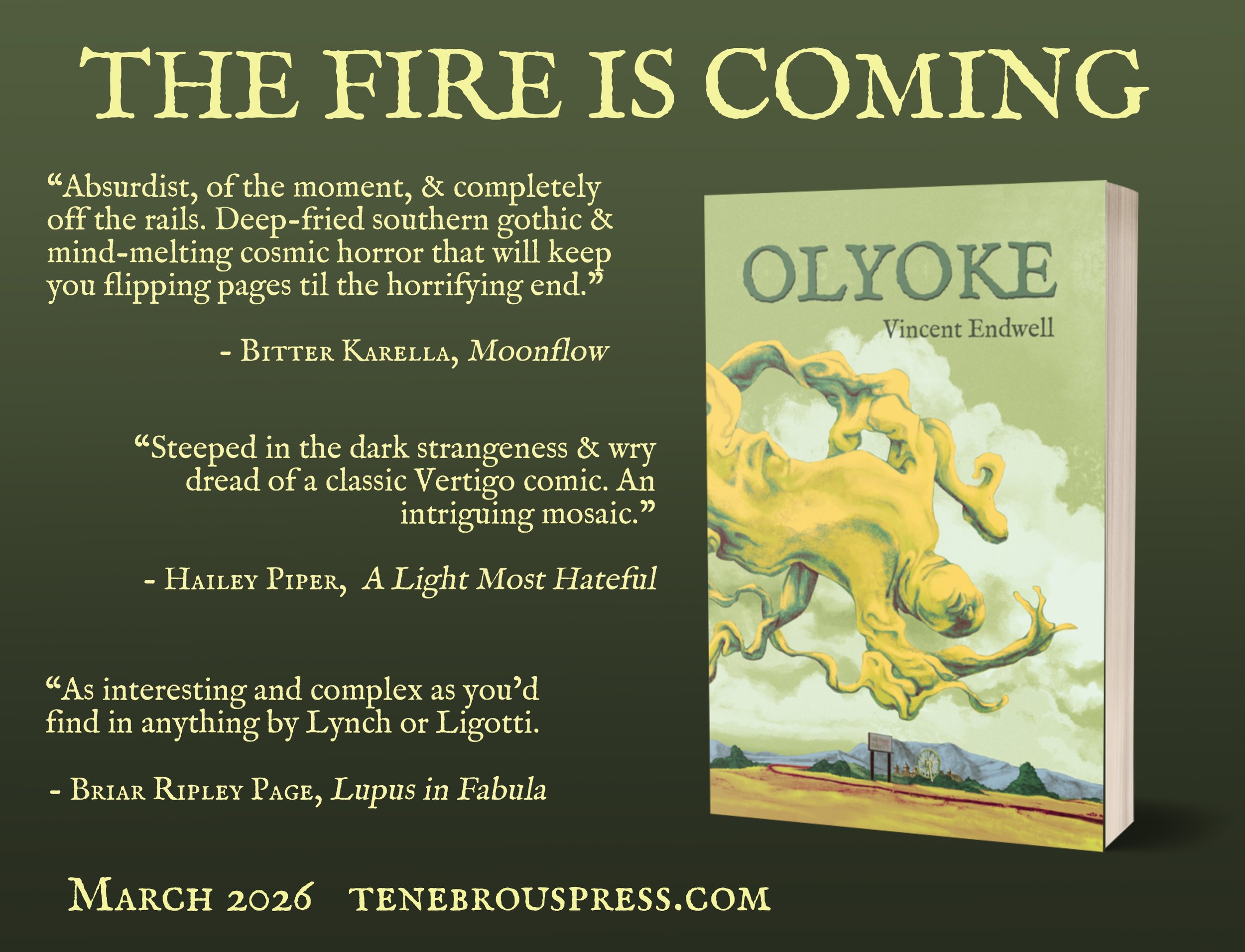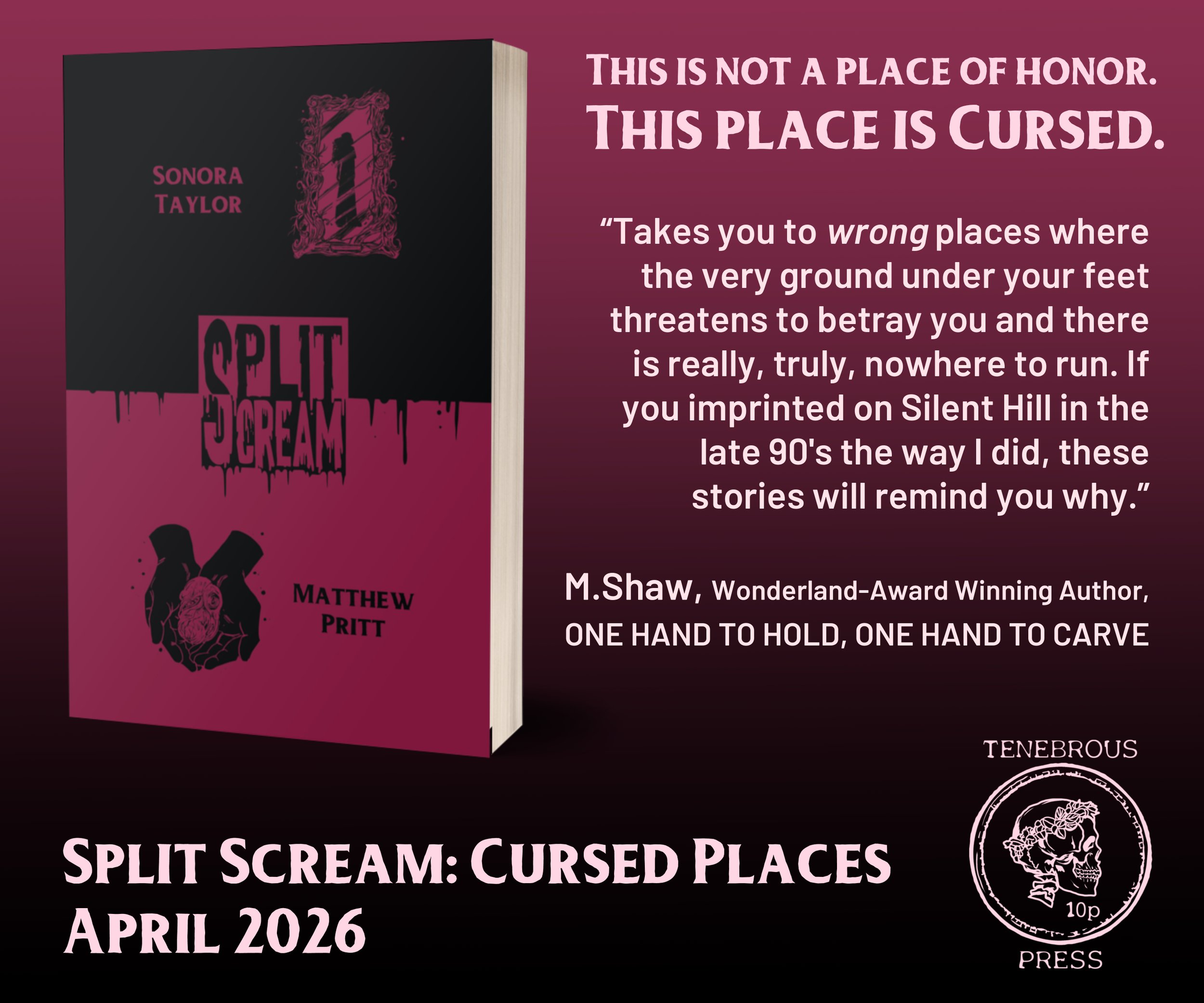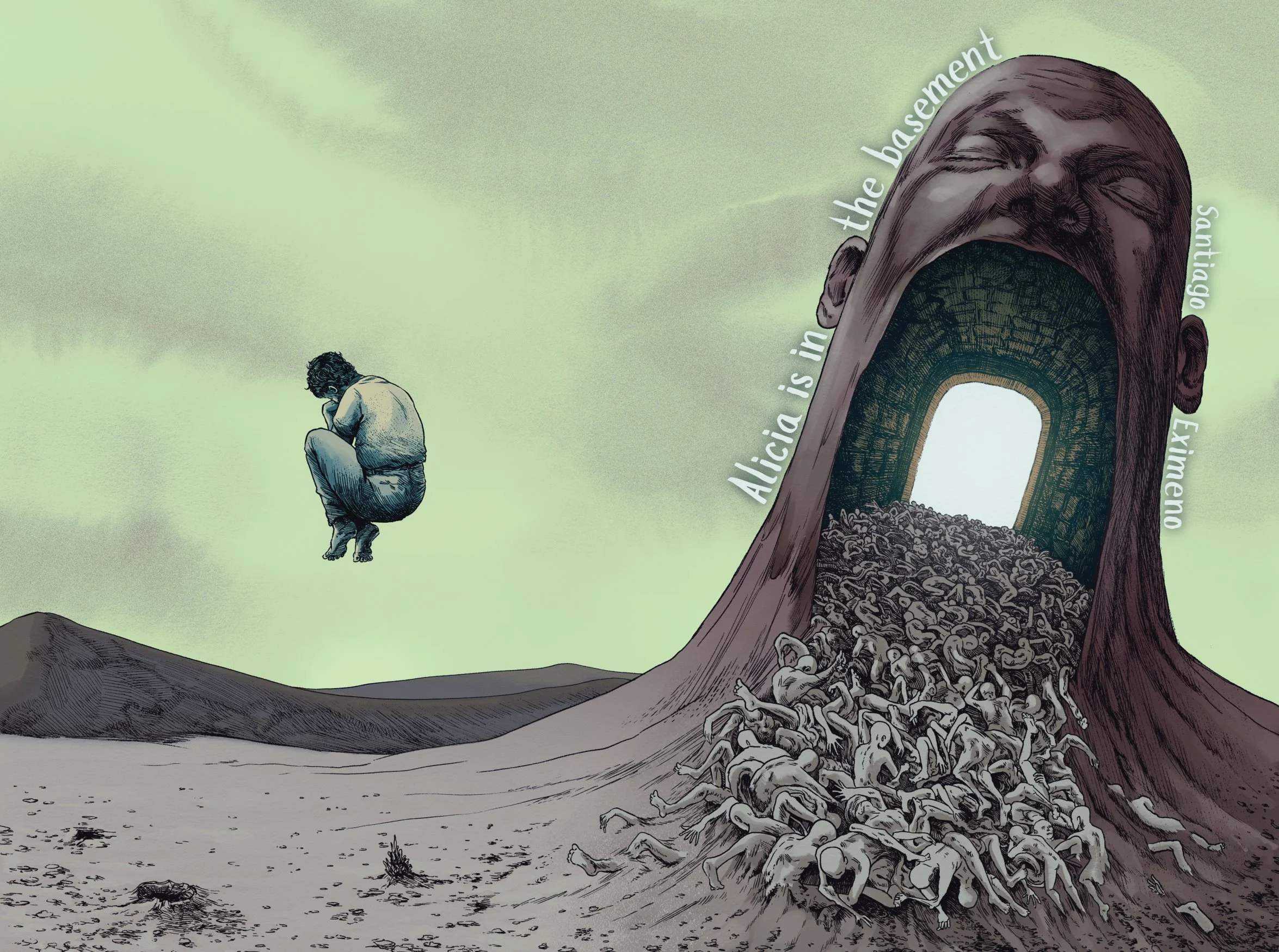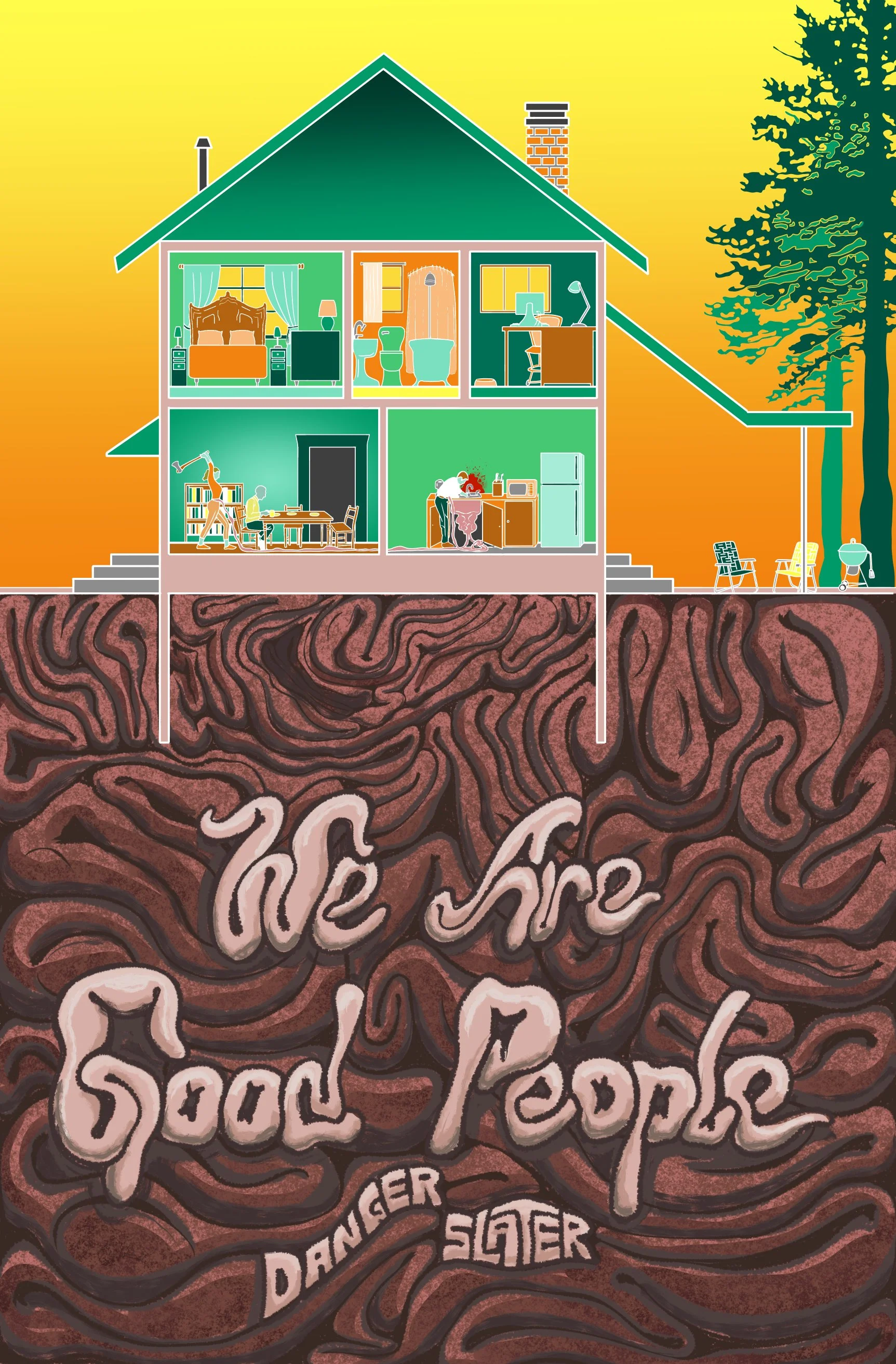It's that wonderful time again.
In our first three years of publishing a Best New Weird Horror anthology, Alex and I were pretty devil-may-care, free-wheeling, anything-goes, shoot-all-your-shots with the submissions process:
Authors, send us your five—fuck it, seven or eight—top stories! Nominate your friends! Your enemies! Here, scribble your story on this blank spot on my t-shirt, I'll read it off paired mirrors when I get home! No, putting your own name on your manuscript isn't necessary, helpful sure, but not necessary!
And that worked—well, it worked lunatically. But I mean, we're both a little insane and a lot devoted to remaining as accessible as possible. This year we put a few common-sense guardrails on subbing—while still encouraging everyone and anyone to make recommendations for anything that fits the guidelines—and you still provided. In the order of many hundreds.
From that heap of glorious, wonderful, wild Weird, we are honored to present to you...
...The 2025 BRAVE NEW WEIRD Shortlist
(in alphabetical order)
A. L. Munson We Told You of the One Who Lives in the Mound
A.L. Goldfuss Drosera regina
Addison Smith Those Perfect Materials
Akis Linardos Up His Arm Crawls a Tooth-sized Spider
Alex Tucker Blue Hole
Alexander James Silver Wires & Sweet Water
Alistair Rey Leviathan’s Womb
Amabilis O'Hara A Sign Hangs From My Hunger
Andrew Humphrey Dark Water
Andrew Kozma The Only Good Billionaire
Andrew Rivas THE GOOPY LIL GUYS GO VIRAL
Angela Sylvaine #blessed
Ash Huang Safe Face
Ashley Stokes Orange Slab
Audrey Zhou Two’s Company, Three Might Be A Sign of Demonic Possession
Ben Tufnell Bosch
Benjamin Larned That Red Hot Beat
Beth Goder Mirror-hole
Biscuit Starberry You Are Going to Die
Caleb Bethea Glitter in Your Eyes
Caroline Hung Ticket po mamser.
Cassiopeia Gatmaitan Maiden, Monster, Muse
Chase Anderson Space is Full of Ghosts (and I fucking hate it here)
Chris Scott The Sunflower Farmer
Chris Sumberg There's Lobster in Heaven!
Chris W. McGuinness Tract 16
Colin Hinckley The Roots Run Deep, It Blooms Like a Flower
Corrie Haldane Hivemind
D. Marmara In the Amygdala of the Beholder
Dane Erbach That Night
Daniel Loring Keating Letter of Apology from Eldritch Appliances, LLC
David Corse All My Angry Selves
David Luntz Brief Interlude with the Night Hag
Diana Dima Logoptera
Drew Broussard Almost Everything He Dreamed
Jennifer Hudak The Colonists
Juleigh Howard-Hobson Death Doesn't Sound Like It Looks
Kawai Shen The Doll's Boy
Kelsea Yu Deliquescence
Lisa Cai Margery Lung Is Unstoppable
Lyndsie Manusos Proscenium
Mary Kuryla Wig
Maura Yzmore She Giggled, Slippery In My Arms
Morgan Chalfant D'rix
Morgan Melhuish A Fragment of the Heart of Sappho
Nemo Arator Midnight Surgery
Patrick Malka What We Remember, What We Pass Down
Rain Corbyn Haute
Steven Patchett Bob's Machine
T.L. Bodine Cowbirds
TJ Price Exhibits...
Tom W. Raymond PIAMF
Toshiya Kamei Sworn Brothers
Trevor James Zaple What Comes On The West Wind
V. H. Chen Eleven Songs For Another Lover
Wailana Kalama The Lazarus Ruins
Wen Wen Yang Drought's Vengeance
William Shaw The Universe’s Best Erotic Writing, Volume 1: A Book Review by Ian Harrison
Wyatt Robinette Nothing Extreme, Please
Z.D. Dochterman Avila Beach
Zebulon Horse The Mascot's Head
Everyone on this list is now a BNW-nominated author with a BNW-nominated story. All nominees will receive a shout-out in the anthology, and the winners will be notified for further details within a few weeks, with a tentative anthology release scheduled for late June.
Congratulations to all the fabulous creators on this list, and thank you to everyone who submitted. We still have our work cut out for us, compiling the leanest, meanest, Weirdest 70,000-ish words that we can from the above.
Editor's note:
If a name isn't on the list and you feel any sort of way about it, be it yours or someone else's, you're probably righter than we are!
As much as we (collective, editors doing best-of anthologies) try to market them as the 'best' works, that's a loose marketing term and largely only exists because 'the ones we happened to vibe with most and thought were a nice broad showcase, because really there's no such thing as objectively best or even objectively better stories of the year anthology' would have been a cumbersome title.
Any piece not being present is not an indication that it isn't good enough, or Weird enough. If there were such a thing as best and Weirdest, we would all be publishing the same twenty stories, and much as there are people out there who believe that's an acceptable practice, that's not us.
One of our favourite people in publishing is Michael Kelly of Undertow Publications, who curates Best Weird Fiction of the Year, and watching the broad range and variety in his choices, as well as how different they are from ours, is always a joy. That should be more than ample proof that Weird is, largely, in the eye of the Weirdo, and 'best' is how we get authors in front of readers, not an exclusion of everyone else.
TL;DR: We're sorry we can't scream about all of what we receive, and then some. There is so much magnificent work out there, and there should be more people screaming about it.

